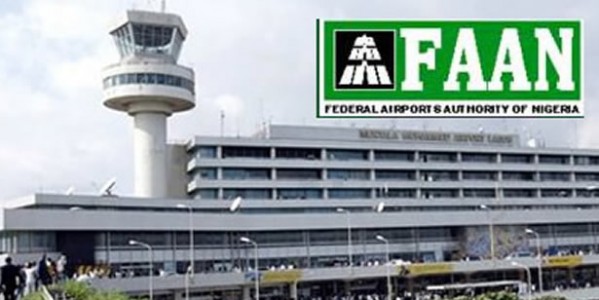The Aviation Round Table (ART) has called on the Federal Airports Authority of Nigeria (FAAN) to develop a Nigerian Civil Aviation Authority (NCAA) approved runway maintenance programme for all airports nationwide.
ART’s President, Mr Gbenga Olowo, made the call in a statement made available to the News Agency of Nigeria (NAN) on Sunday in Lagos
NAN reports that the Federal Government had proposed to close the Abuja airport from March 8, for a six weeks period to repair its dilapidated runway.
Olowo, who blamed FAAN and NCAA for the deplorable condition of the Nnamdi Azikiwe International Airport (NAIA), Abuja runway, said both agencies failed to live up to their statutory responsibilities.
“As key stakeholders in safety critical issues in the sector, we need to ask the salient question: How did we get here?
“The Abuja runway was originally meant to last for 20 years. However, because it was probably underutilised judging from the number of landings on the runway, its utilisation was further stretched by an additional 14 years.
“The failure of FAAN to strictly follow the runway maintenance programme and conduct regular repairs and rehabilitation of the runway as at when due, coupled with the lethargic oversight of NCAA, have effectively contributed in bringing the situation to where it is today.
“This has led to the current deplorable condition and the attendant grave safety implications as evidenced by several near fatal incidents that have occurred.
“FAAN, therefore, needs to develop a runway maintenance programme approved by NCAA if none is currently available and NCAA must ensure that FAAN complies with the Runway Maintenance Programme for NAIA religiously.”
Olowo said ART was compelled to carry out a holistic assessment of the decision to close the NAIA and critically appraise the safety, security and economic implications of such a serious decision on Nigeria and Nigerians.
“The decision as to whether a runway should be closed or not rests within the purview of NCAA as provided for in the Act establishing the regulatory agency and not the executive arm of government.
“Unfortunately, constant political interference by the ministry continues to hamper its effectiveness,” he said.
He therefore advised the NCAA to immediately conduct a thorough assessment of the status of all the runways at the various airports in the country to forestall reoccurrence of the NAIA runway problems.
According to him, the airlines, service providers, employees and the national economy will all be negatively impacted by the closure of the Abuja airport.
“In view of the untold hardship the closure will inevitably bring with it, we are concerned and sincerely hope that the project will be completed on schedule within the stipulated six weeks.
“This will help to reduce the burden and costs to the people of Nigeria, the economy and the international community who do business in Nigeria,” he said.
Olowo also advised the federal aovernment to ensure that movement of passengers between Abuja and Kaduna was clear and unambiguous in the interest of safety and security.
“In light of the closure however, airline operators can take advantage of the situation by increasing their flights into Kaduna from Lagos and other major cities around the country.
“Until recently, there were 14 international airlines operating about 70 weekly flights to Abuja. With the withdrawal of Emirates, Delta and Kenya Airways from the route, the weekly flights by the remaining airlines will now be about 55 flights weekly.
“Assuming that each inbound and outbound flight has 100 passengers, conservatively there would be 5,500 inbound passengers and 5,500 outbound or 11,000 passengers to and from Abuja via Kaduna weekly or about 1,600 inbound and outbound passengers daily.
“Conservatively, these would require about 20 flights from our domestic airlines; they should be encouraged to develop capacity to take advantage of this opportunity which the closure of Abuja is likely to create for them.
“Moreover, the closure will give helicopter operators an opportunity to operate commuter services between Abuja and Kaduna.”
He also explained why it was not proper to close only a section of the runway during the repairs as earlier suggested by some individuals and groups.
“ART has learnt that out of the 3.6km runway at NAIA, only 2.4km is currently available.
“This, therefore, makes it unsafe and impracticable to divide the runway into two and still continue to operate on one section while work proceeds on the other section.
“Also, the call for a second runway at NAIA is unnecessary at this time in view of the fact that the current runway is underutilised.
“For instance, Gatwick is a single runway airport that began commercial operations since 1933 with a runway length of 3.3km as against that of NAIA which is 3.6km and it has never been closed in 84 years,” Olowo stated. (NAN)

